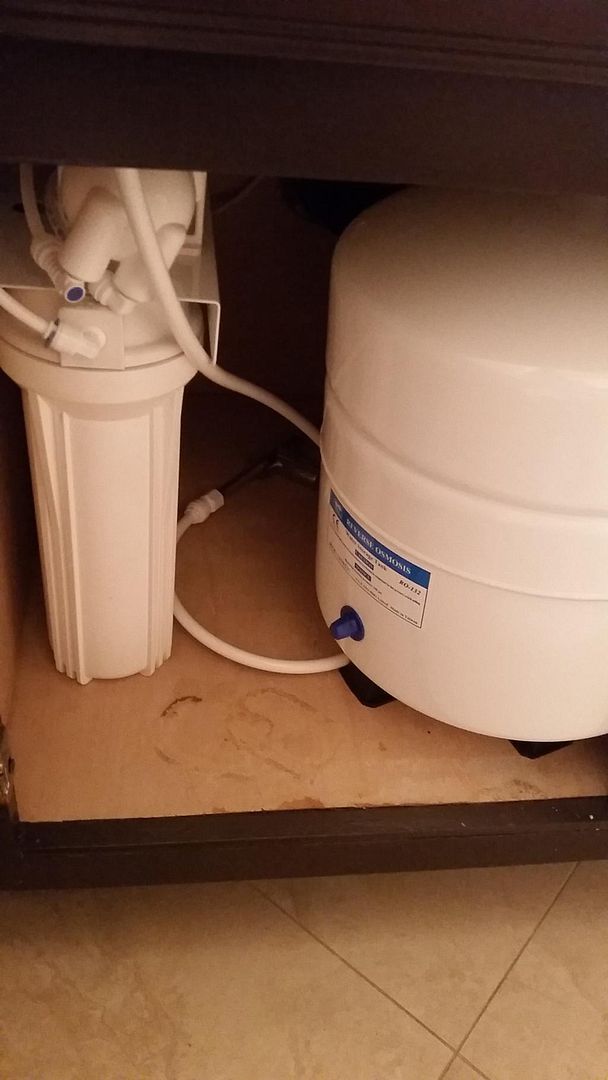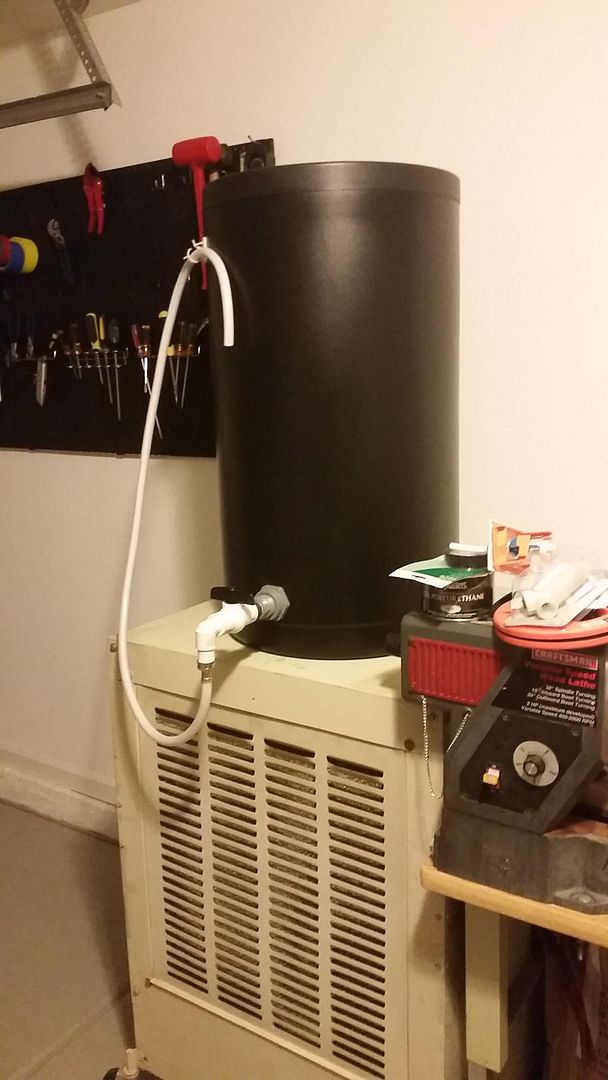nudarkshadowl
Well-Known Member
- Joined
- Apr 4, 2014
- Messages
- 51
- Reaction score
- 26
Morning guys and gals! I am getting a 5 stage RO system in couple days for my soon to be here AG sculpture. I plan to run the RO product out line to the garage so I can fill a 35 gallon HDPE/BPA free food safe storage tank. The tank will have an RO float that will turn off the system once my storage tank is full. The system has an auto shut off and check valve, so the float should apply adequate back pressure to trigger the shut off.
My question is, can I still use the pressure tank that came with the system in addition to the storage tank or would doing so cause the system to shut off once the smaller 3.2 gallon pressure tank is full. I was going to plumb the storage tank in the garage off of the product out line (I have no need for a faucet), but I don't know if I need to plug/bypass the 3.2 gallon storage tank and just run the RO system direct to the 35 gallon tank, or include the pressure tank. Any advice would be great! Cheers!
My question is, can I still use the pressure tank that came with the system in addition to the storage tank or would doing so cause the system to shut off once the smaller 3.2 gallon pressure tank is full. I was going to plumb the storage tank in the garage off of the product out line (I have no need for a faucet), but I don't know if I need to plug/bypass the 3.2 gallon storage tank and just run the RO system direct to the 35 gallon tank, or include the pressure tank. Any advice would be great! Cheers!







